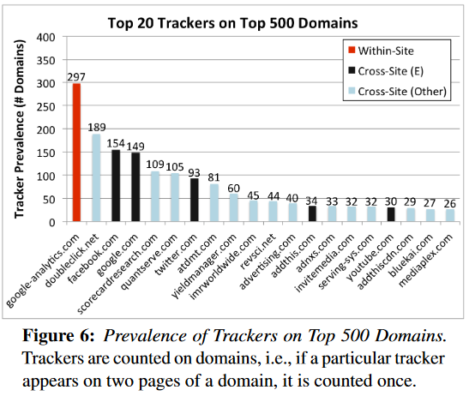Data Tracking on the Internet
Many things have changed ever since the rise of technological advances. Especially those regarding the internet and what people can use them for. Now, things like smartphones and the ability to connect to the internet grow rapidly. For example, in 2015 the International Telecommunications Union stated their figures for 2015, stating that 3.2 billion people use the internet, which will most likely continue to grow. Alongside the overall growing accessibility on the internet, we also have more accessibility to find and buy certain items on the internet, especially during the holiday season. However, there are many parts of websites that can affect a person’s spending, some of them not being noticeable by the user. In this article I will analysis one way that your data (commonly dubbed as digital footprints) can be collected and used to affect consumers who use online shopping.
When you use a website, you are interacting with the many different components that make up the website. These components are what’s known as the front-end and the back-end. The front-end refers to the component in which the user interacts with, such as clicking buttons on a webpage or typing in text. The back-end is a component in which it runs in the background and serves as a foundation for the website to rest on, it is what makes everything work. This includes things such as databases and coding related to such. Think of it as the engine and other automobile parts (the back end) that are covered by the metal body (the front end), without the autoparts running the car would simply not work as a whole. Without the back-end of the website structure, the website would not work as a whole. The back end is also home to cookies, amongst other codes and scripts.

A Figure stating the prevalence of trackers on the top 500 website domains from the University of Washington
An article in MIT’s Technology Review explains the function of cookies, they are small pieces of data that a website loads onto your browser. When you enter back onto the website, the browser sends that same cookie back so they can correlate it with whatever you were doing on the website in the past. These cookies can be used for convenience, for example, if you did not log off of social media website like Twitter or Facebook, the cookie will keep that information for the next time you use that page. This makes it so that you do not have to login every time you get on the page. However, there are also some cookies that track your data, resulting them being dubbed as “tracking cookies”. The Finnish cyber security website F-Secure elaborates on what track cookies can do with this data, such as targeted advertising and distinguish unique users when on a website. These types of cookies can be taken advantage of by a third party (which are not of the website domain). For example, in a research paper by Jonathan R. Mayer, a computer scientist in Stanford University, talks about advertising companies that use cookies to track users, such as ClearSpring, Interclick, Specific Media and Quantcast.
The amount of third party cookies can also range in websites, according to a research paper from The Center for Internet and Society at Stanford Law “Slate’s home page, for example, references at least a dozen third-party trackers. When we viewed the Post’s story about the NSA, our browser was directed to 39 third-party trackers, including one located in Japan. (This isn’t unusual, and Slate and the Post make no secret of it.)”. With these uses of cookies, one can hypothetically get a person to spend money on an item. Alongside these advertising companies can get things such as your geolocation, marketing company Kissmetrics elaborates on this topic. “All this data creates a user persona or profile that can be used to segment the audience into certain types. People with similar online behavior can be clubbed together into one segment”.
However, this poses an interesting question regarding privacy concerns. While targeted advertising can help a person find what they want to buy. Users themselves are not in support of cookies for targeted advertising. In 2012, Pew Research conducted a survey which included questions about how they feel about search engines and websites collecting information about them and using it to target advertising. The majority did not like how websites collect information to use in targeted advertising, 73% seeing it as an invasion of privacy. 68% did not like the idea of having their online behavior analyzed. On top of that, many users do not know how to limit the information that is collected on a website. Just 38% of users stated that they are aware of how to limit this data collection. Overall, the use of cookies for targeted advertising is negative, which is then amplified by the general public lacking knowledge on technology.
